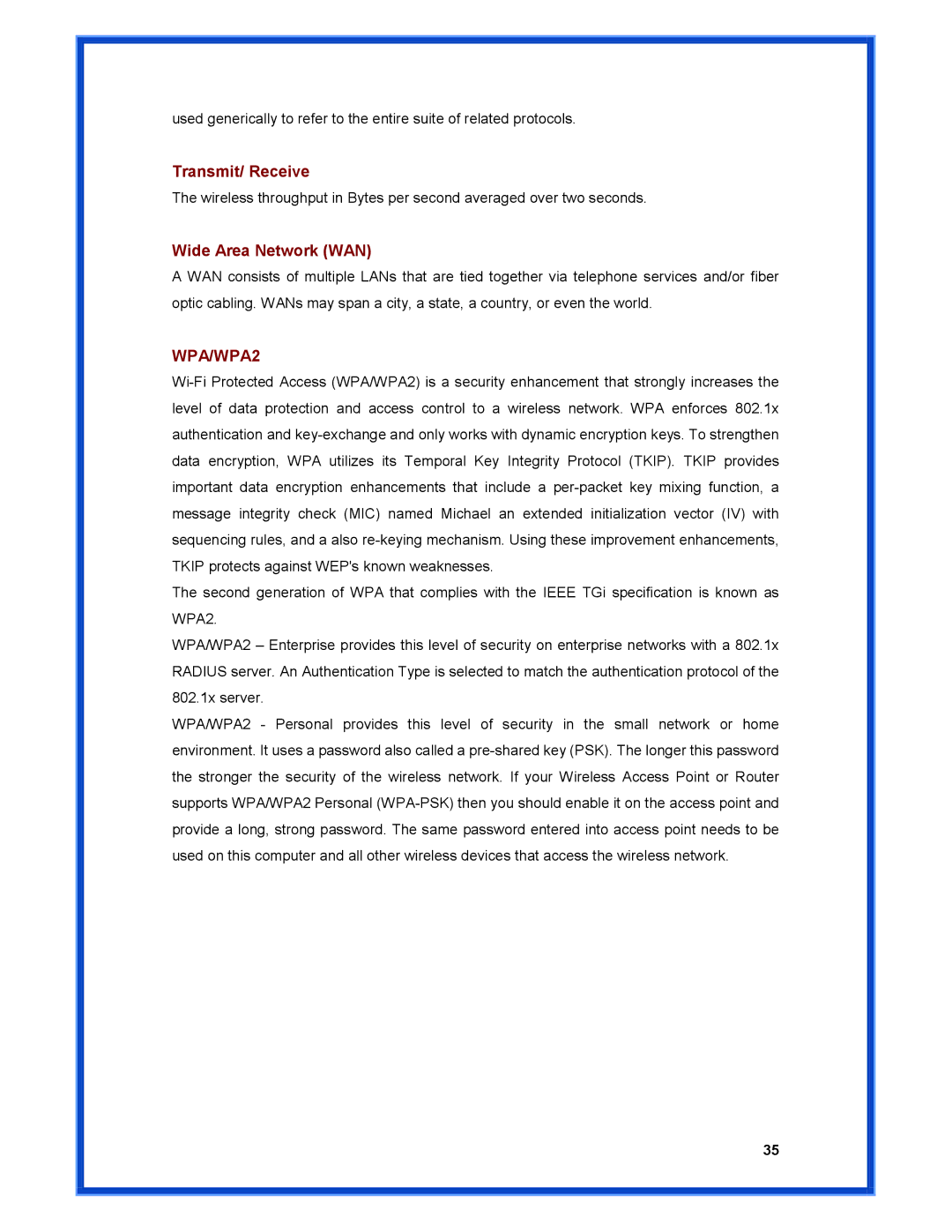
used generically to refer to the entire suite of related protocols.
Transmit/ Receive
The wireless throughput in Bytes per second averaged over two seconds.
Wide Area Network (WAN)
A WAN consists of multiple LANs that are tied together via telephone services and/or fiber optic cabling. WANs may span a city, a state, a country, or even the world.
WPA/WPA2
Wi-Fi Protected Access (WPA/WPA2) is a security enhancement that strongly increases the level of data protection and access control to a wireless network. WPA enforces 802.1x authentication and key-exchange and only works with dynamic encryption keys. To strengthen data encryption, WPA utilizes its Temporal Key Integrity Protocol (TKIP). TKIP provides important data encryption enhancements that include a per-packet key mixing function, a message integrity check (MIC) named Michael an extended initialization vector (IV) with sequencing rules, and a also re-keying mechanism. Using these improvement enhancements, TKIP protects against WEP's known weaknesses.
The second generation of WPA that complies with the IEEE TGi specification is known as WPA2.
WPA/WPA2 – Enterprise provides this level of security on enterprise networks with a 802.1x RADIUS server. An Authentication Type is selected to match the authentication protocol of the 802.1x server.
WPA/WPA2 - Personal provides this level of security in the small network or home environment. It uses a password also called a pre-shared key (PSK). The longer this password the stronger the security of the wireless network. If your Wireless Access Point or Router supports WPA/WPA2 Personal (WPA-PSK) then you should enable it on the access point and provide a long, strong password. The same password entered into access point needs to be used on this computer and all other wireless devices that access the wireless network.

